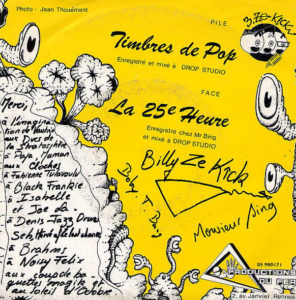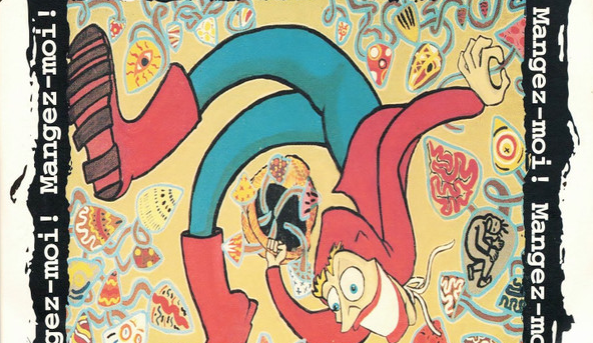|
Getting your Trinity Audio player ready...
|
Billy Ze Kick is a French rock music band that emerged in the early 1990s, making a name for themselves with their unique blend of punk rock and reggae influences. The band’s sound was characterized by high-energy rhythms, catchy guitar riffs, and politically charged lyrics, which spoke to the social and cultural climate of the era. In this article, we take a deep dive into the earldays of Billy Ze Kick, tracing the band’s origins and examining the key factors that shaped their sound.

Forming the Band: A Tale of Two Musicians
The story of Billy Ze Kick begins with the meeting of two musicians, Maurice Mourier and Joseph Racaille, who first crossed paths in the Paris music scene in the mid-1980s. Mourier was a drummer who had already made a name for himself in the punk and alternative rock scenes, playing with bands like Les Satellites and Les Garçons Bouchers. Racaille, on the other hand, was a guitarist with a background in jazz and classical music, who was looking to break into the world of rock and roll.
Despite their different backgrounds, Mourier and Racaille quickly hit it off and began jamming together, experimenting with different sounds and styles. They soon decided to form a band, recruiting bassist Michel Toty and singer Nathalie Cousin to round out their lineup. The band took its name from a character in a French comic book, Billy the Cat, and the slang term “Ze Kick,” which roughly translates to “the vibe” or “the energy.”
Early Success and Political Activism
In the early days of Billy Ze Kick, the band began to build a following in the Paris music scene, playing shows at small clubs and underground venues. They quickly gained a reputation for their high-energy performances and politically charged lyrics, which tackled topics like racism, poverty, and government corruption. Their early success soon led to a record deal with independent label Saravah Records, and the release of their debut album, “Billy Ze Kick et les Gamins en Folie,” in 1991.
The Evolution of Billy Ze Kick’s Sound
As Billy Ze Kick continued to grow in popularity, the band began to experiment with new sounds and influences, drawing from genres like ska, reggae, and even traditional French chanson. Their second album, “Paniac,” released in 1993, reflected this evolution, featuring a more diverse range of styles and moods. The album also marked the departure of singer Nathalie Cousin, who was replaced by the new vocalist Nathalie Bénard.
Over the next few years, Billy Ze Kick continued to release albums and tour extensively, building a loyal fan base both in France and abroad. However, by the late 1990s, the band began to experience internal tensions, with members pursuing their solo projects and creative visions. Despite this, Billy Ze Kick remains a beloved and influential band in the history of French rock music, and their early days stand as a testament to the power of collaboration and political activism in the music world.
The Legacy of Billy Ze Kick
Although Billy Ze Kick disbanded in the early 2000s, their music and political activism have left a lasting impact. The band’s fusion of punk rock and reggae, along with their socially conscious lyrics inspired a generation of musicians and activists in France.
One of the most significant aspects of Billy Ze Kick’s legacy is their role in the rise of the “rock alternative”. This was a wave of independent, politically charged rock bands that emerged in the 1990s . Drawing from a range of musical influences and expressing a sense of disillusionment with mainstream politics and culture. Billy Ze Kick was at the forefront of this movement, with their music and activism helping to inspire artists.
In addition to their influence on French music . Billy Ze Kick’s fusion of punk rock and reggae also foreshadowed the emergence of “punk-influenced” genres. The band’s energetic, genre-blending approach to music helped pave the way for a new generation of musicians. Those who sought to break down musical barriers and explore the possibilities of cross-cultural collaboration.
Conclusion
In conclusion, the origins of Billy Ze Kick are a testament to the power of collaboration . By fusing punk rock and reggae, the band created a sound that was both energetic and socially conscious. Inspiring a generation of musicians and activists in France and beyond. Today, their legacy lives on, as their music and activism continue to inspire and connect people across cultural boundaries.


